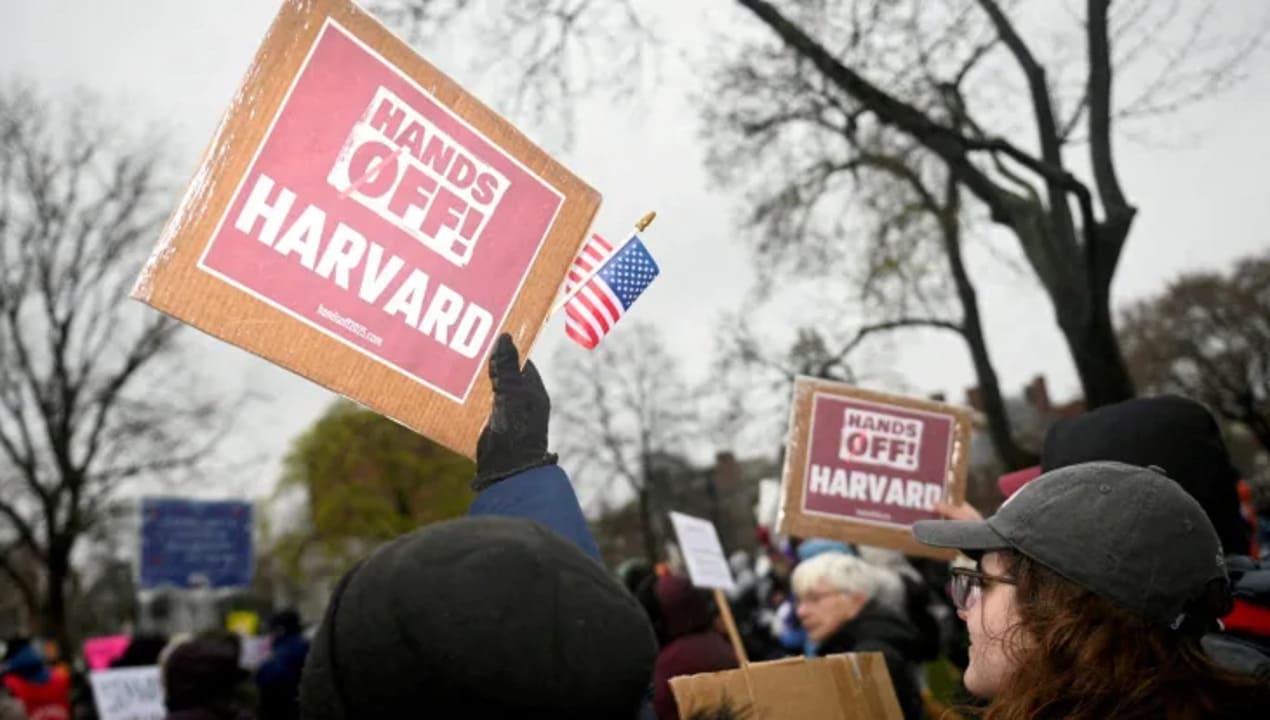
Independent Report – The administration of U.S. President Donald Trump has launched a multi-faceted campaign targeting Harvard University, the oldest and wealthiest university in the country. This campaign involves several measures, including funding freezes, investigations, and threats to revoke the school’s tax-exempt status. Trump has stated that his goal is to force changes at Harvard and other top universities across the United States, which he claims have been overtaken by leftist “woke” ideologies and have become centers of antisemitism.
The Trump administration has opened numerous investigations into Harvard. Some focus on threats against Jewish students and faculty following pro-Palestinian protests that erupted after the Hamas attack on Israel on October 7, 2023, and the subsequent Israeli military response in Gaza. Other investigations examine whether Harvard discriminates based on sex and gender, as well as the school’s connections with foreign governments and international students.
Harvard and other universities argue that Trump’s actions threaten freedom of speech, academic freedom, and even the very existence of these institutions. The Trump administration’s campaign against Harvard plays out across several key areas.
First, there are federal grants and contracts. In April, the Trump administration sent a letter to Harvard demanding sweeping changes in how the university operates. Harvard’s President Alan Garber publicly rejected these demands. Stating that they would effectively hand control of the university over to the government. Hours after this rejection, the administration announced it was freezing over $2 billion in federal contracts and grants to Harvard. Funds that mostly support scientific and medical research. The total frozen amount has since risen to around $3 billion. This include blocked grants from the National Institutes of Health and funds from eight other federal agencies, including the Centers for Disease Control. Harvard is fighting these funding cuts in court. Trump also mentioned in May that he was considering reallocating previously awarded scientific and engineering research funds from Harvard to vocational schools.
Also Read : Majority of Public Trusts Prosecutors to Resolve Major Cases
Second, the issue of foreign students. In May, the Trump administration revoked Harvard’s ability to enroll international students. And also declared that current foreign students must transfer to other schools or risk losing their legal immigration status. Harvard sued to challenge this action, and a judge issued a temporary block against the administration’s move. More than a quarter of Harvard’s student body is made up of international students. Who serve as an important revenue source for the Ivy League school and many other colleges across the U.S. In late May, Secretary of State Marco Rubio announced that the administration would begin “aggressively” revoking visas of Chinese students attending Harvard and other U.S. universities. Concerns over Chinese students in the U.S. are not new; many Republicans worry that China uses these students to gain access to advanced U.S. technology. This visa action directly impacts Harvard’s strong ties with China and leaves many Chinese students in legal uncertainty as they consider their academic futures.
Third, the administration is using the tax system as a tool of pressure. There are two main tax-related approaches being used against Harvard. First is the threat to revoke the university’s tax-exempt status. Which experts say likely saves Harvard hundreds of millions of dollars annually. However, it remains unclear whether the Internal Revenue Service (IRS) would actually revoke this status or if such a move would hold up in court. Most universities, including Harvard, are exempt from federal income tax because they are classified as charitable organizations operating exclusively for public educational purposes. This exemption also allows donors to make tax-deductible contributions, an important source of income for universities with wealthy alumni.
The second tax-related approach comes from language in a massive spending bill currently before Congress. This provision would sharply increase the taxes that Harvard and other elite schools pay on profits from their enormous endowment investments. Critics say this would weaken Harvard’s ability to provide generous financial aid to students from lower-income backgrounds.
Overall, the Trump administration’s actions against Harvard are part of a broader effort to reshape America’s top universities. Which are seen by Trump and his supporters as having strayed from conservative values. However, these measures have faced strong criticism from academics and advocates for academic freedom who warn that such policies risk undermining university autonomy. And also the freedom of thought that form the foundation of higher education in the United States. Harvard continues to fight back through legal channels and public advocacy in its efforts to preserve its rights and independence amid intense political pressure.
Also Read : Off the Grid: The Rise of Energy-Independent Homes